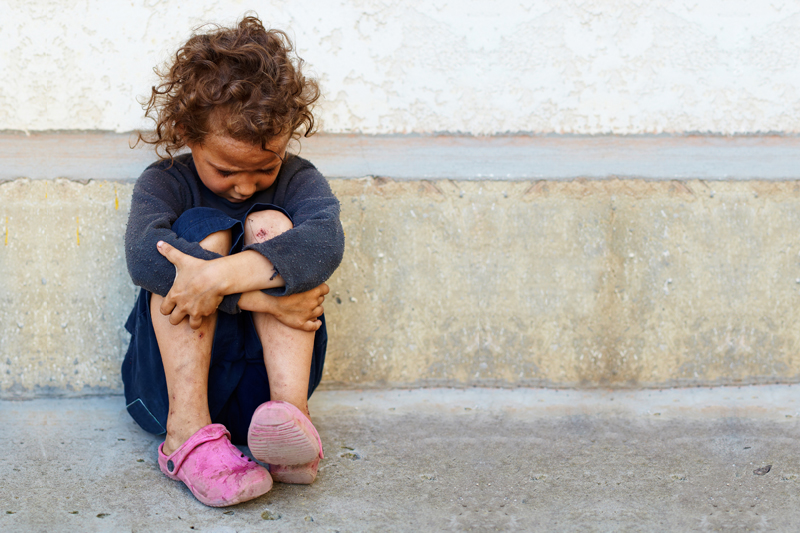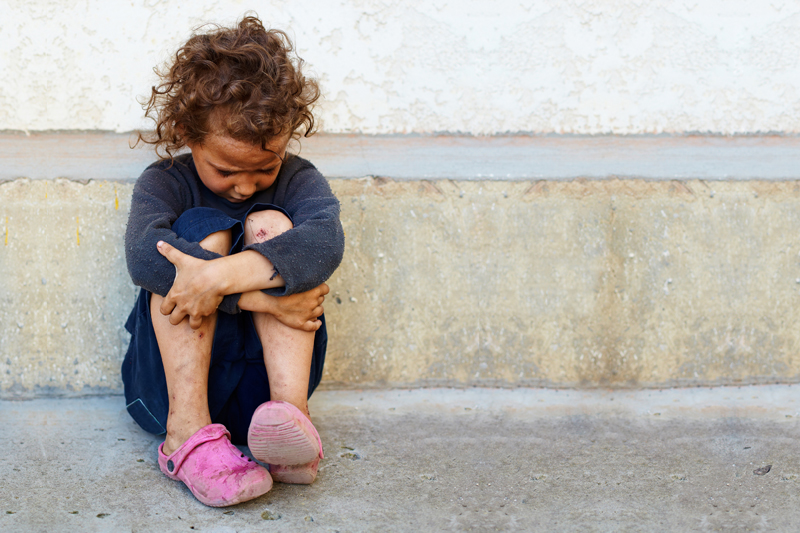Exploitation

Exploitation is defined, “To employ to the greatest possible advantage” or “To make use of selfishly or unethically.” Put simply, exploited means to manipulate. People, who exploit children, manipulate children and their environment for their own personal gain.
People who hurt children do so for their own selfish and unethical needs by manipulating children, and exploiting them for their own sexual satisfaction. Adults can manipulate children because adults are bigger than the child is, both physically and emotionally. Adults are the dominant figure in a child’s life.
Children learn early on in life to “listen” to adults, and if they do not “listen,” they learn there are not so pleasant outcomes. Adults, who exploit children, know how to manipulate children and people in the children’s life. Sexual abuse is one way adults exploit children.
Although there is no definitive definition of sexual abuse, it can include watching a child while he or she dresses, bathes or uses the bathroom. In addition an adult might expose his or her private area to a child. Other forms of abuse include touching a child’s sexual organs or having the child touch the abuser’s genitals, even masturbating in front of a child is abuse.
There are no safety nets for children of any particular race, culture, religion, or economic background. No one particular group seems any less vulnerable to abuse than another group. Young women report sexual abuse more than young men, possibly because young men are less likely to talk to anyone about sexual abuse and what has happened to him.
Most sex offenders are either family members or friends of the family or child. Let me say that again…Most people who will hurt a child sexually are closely related to the child or the child’s family. People are quick to dismiss a story in the news, like what happened to Shawn Hornbeck and say “thank god that will never happen to my child because…” The reality is Shawn Hornbeck was an exception to the rule.
Many sex offenders who will abuse a child are either a well-known family friend or a direct relative of the victim. This means the offender is someone the child already knows and trusts and NOT a stranger hiding in the bushes. Sometimes the boogey man is right in plain view and no one will acknowledge what is happening.
Anyone a child knows personally can be a perpetrator. The soccer coach; the youth pastor, the science teacher, and the librarian are possible sex offenders. A new step dad, the new step mom’s 14-year-old son, the day care provider, the day care provider’s brother who moved in last week after he lost his job, and yet most parent’s will trust these very people explicitly.
So how do the people we trust and that are the closest to us end up violating our child? The people you trust are people you usually will allow unsupervised, unquestioned access to your child. Think about it! Frightening, isn’t it?
Do you tell your children they have to listen to Uncle John and Aunt Susie no matter what they say? How many of us are divorced and have children living in blended families? We have new step-grandparents, step-aunts, step-uncles, step-cousins, step-brothers and step-sisters, even a new mom or dad.
Today many step-brothers are often five or more years older than their new little step-sisters and so many time’s families are finding out the step-brother has been molesting the younger step-sister for months. This writer is not saying all step-brothers are molesting their step-sisters.
There are simply new family dynamics with new rules and young children are especially vulnerable in new situations. Parents need to teach children new guidelines to live by before something happens, because once something happens we have failed as a parent. It is never too soon or too late to talk with your children on personal boundaries and personal safety.
People who hurt children do so for their own selfish and unethical needs by manipulating children, and exploiting them for their own sexual satisfaction. Adults can manipulate children because adults are bigger than the child is, both physically and emotionally. Adults are the dominant figure in a child’s life.
Children learn early on in life to “listen” to adults, and if they do not “listen,” they learn there are not so pleasant outcomes. Adults, who exploit children, know how to manipulate children and people in the children’s life. Sexual abuse is one way adults exploit children.
Although there is no definitive definition of sexual abuse, it can include watching a child while he or she dresses, bathes or uses the bathroom. In addition an adult might expose his or her private area to a child. Other forms of abuse include touching a child’s sexual organs or having the child touch the abuser’s genitals, even masturbating in front of a child is abuse.
There are no safety nets for children of any particular race, culture, religion, or economic background. No one particular group seems any less vulnerable to abuse than another group. Young women report sexual abuse more than young men, possibly because young men are less likely to talk to anyone about sexual abuse and what has happened to him.
Most sex offenders are either family members or friends of the family or child. Let me say that again…Most people who will hurt a child sexually are closely related to the child or the child’s family. People are quick to dismiss a story in the news, like what happened to Shawn Hornbeck and say “thank god that will never happen to my child because…” The reality is Shawn Hornbeck was an exception to the rule.
Many sex offenders who will abuse a child are either a well-known family friend or a direct relative of the victim. This means the offender is someone the child already knows and trusts and NOT a stranger hiding in the bushes. Sometimes the boogey man is right in plain view and no one will acknowledge what is happening.
Anyone a child knows personally can be a perpetrator. The soccer coach; the youth pastor, the science teacher, and the librarian are possible sex offenders. A new step dad, the new step mom’s 14-year-old son, the day care provider, the day care provider’s brother who moved in last week after he lost his job, and yet most parent’s will trust these very people explicitly.
So how do the people we trust and that are the closest to us end up violating our child? The people you trust are people you usually will allow unsupervised, unquestioned access to your child. Think about it! Frightening, isn’t it?
Do you tell your children they have to listen to Uncle John and Aunt Susie no matter what they say? How many of us are divorced and have children living in blended families? We have new step-grandparents, step-aunts, step-uncles, step-cousins, step-brothers and step-sisters, even a new mom or dad.
Today many step-brothers are often five or more years older than their new little step-sisters and so many time’s families are finding out the step-brother has been molesting the younger step-sister for months. This writer is not saying all step-brothers are molesting their step-sisters.
There are simply new family dynamics with new rules and young children are especially vulnerable in new situations. Parents need to teach children new guidelines to live by before something happens, because once something happens we have failed as a parent. It is never too soon or too late to talk with your children on personal boundaries and personal safety.

Related Articles
Editor's Picks Articles
Top Ten Articles
Previous Features
Site Map
Content copyright © 2023 by Erika Lyn Smith. All rights reserved.
This content was written by Erika Lyn Smith. If you wish to use this content in any manner, you need written permission. Contact Erika Lyn Smith for details.



